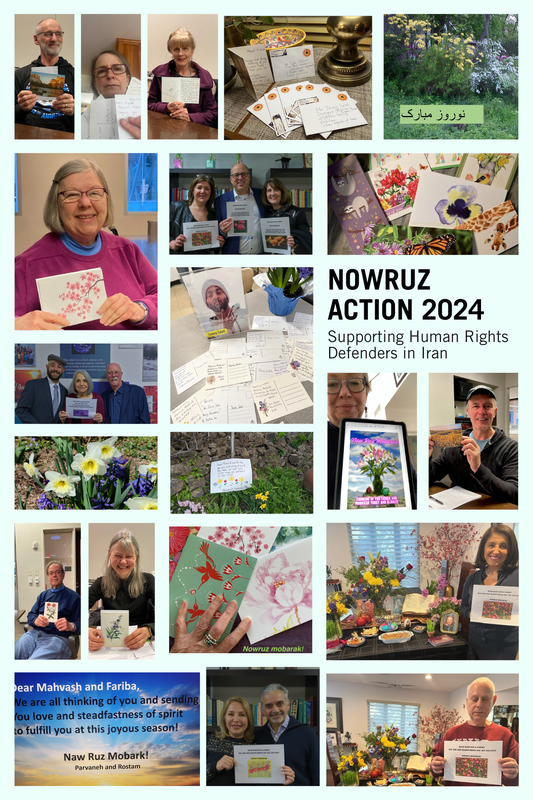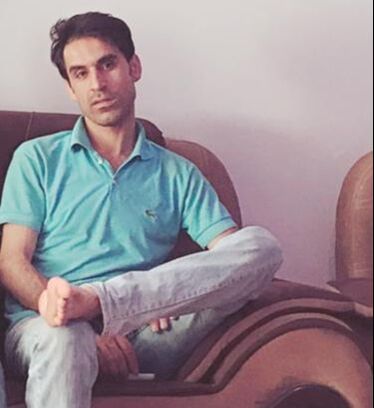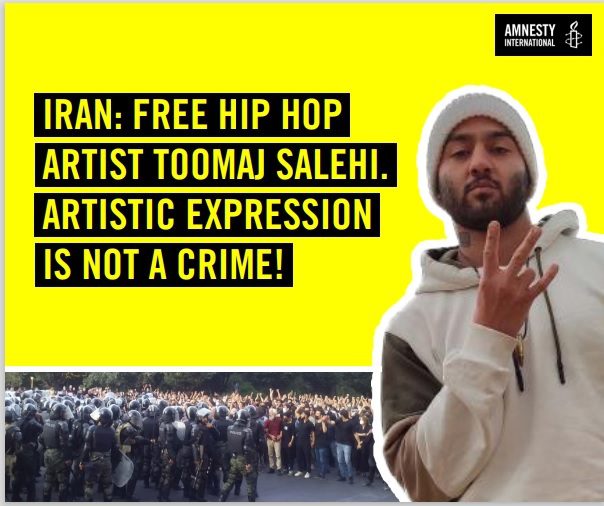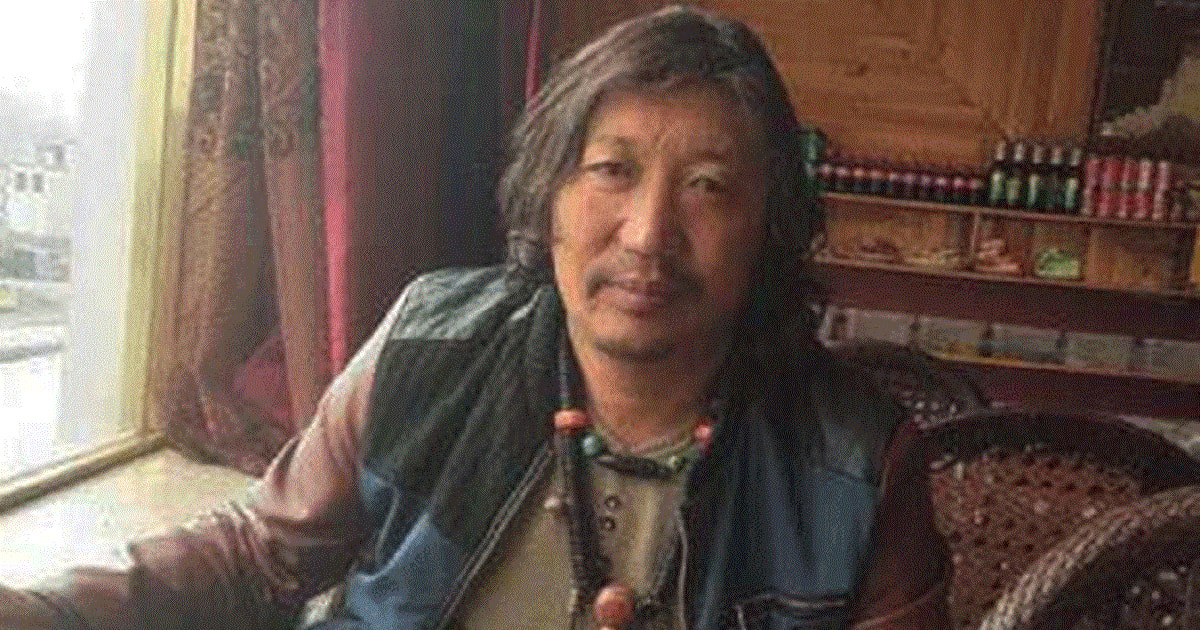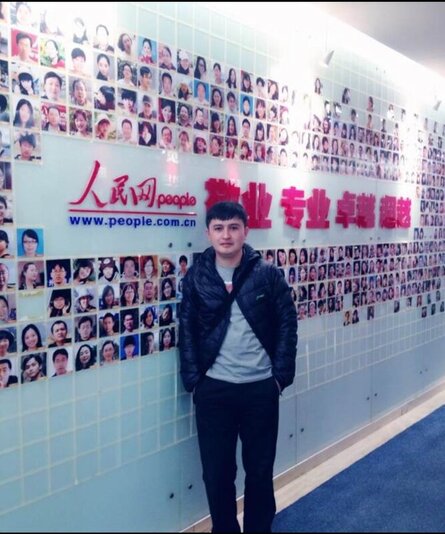Actions and Issues
Get on the Bus 2024 will focus on human rights issues related to Sri Lanka, Iran, China, Tibet, the United Nations and Egypt.
Sri Lanka: Justice For Ragihar Manoharan and the Trinco FiveRagihar Manoharan, a Sri Lankan Tamil student, and four fellow students had gathered for a chat near the seafront in the town of Trincomalee in northeastern Sri Lanka at about 7:00 p.m. on January 2, 2006, when a grenade was thrown at them from a passing auto rickshaw. The students ran, but at least three of them were injured in the explosion. A short while later, a group of 10 to 15 officers in uniform, believed to be police from the elite Special Task Force, arrived. They reportedly put the injured students into their jeep and beat them with rifle butts, and then pushed them out onto the road. According to a witness, the security forces personnel then shot the five students dead.
Despite subsequent court hearings and an investigation by a presidential commission of inquiry, no one has been convicted for these murders. Ragihar’s father gave evidence at the proceedings and then received death threats. Ultimately, Ragihar’s family was forced to flee Sri Lanka. Justice for Ragihar and the rest of the Trinco Five has been one of the GOTB actions for several years. In July 2013, due to the mounting international pressure, the Sri Lankan government arrested 12 Police Special Task Force members in connection with the murders. All 12 were out on bail while the case was pending. In July 2019, the court acquitted all of the defendants due to lack of sufficient evidence. The Sri Lankan Attorney General later ordered the police to re-open investigations into the killings. We are continuing to call on the Sri Lankan government to effectively investigate and prosecute those who murdered Ragihar Manoharan and the rest of the “Trinco Five." The 2021 report on Sri Lanka by the U.N. High Commissioner for Human Rights said that the High Commissioner’s office had been tracking the investigation and prosecution by the Sri Lankan government of several emblematic cases, including the Trinco Five students, as a key measure of Sri Lanka’s commitment to ending impunity. The report noted that none of these cases has been brought to a successful conclusion or conviction. |
Take Action:
Online Resources:
|
Sri Lanka: International Justice for Mass Graves in Sri Lanka
Sri Lanka has over 20 mass graves discovered during and after the end of its brutal civil war. Despite the existence of so many sites, the Sri Lanka government has not investigated any of them according to standard international forensic procedures. Families of the enforced disappeared fear that the bodies in these graves in the North and East of Sri Lanka are their children/family members – victims of genocide committed by the Sri Lankas state, controlled by Sinhala Buddhists fighting ethnic Tamils in Sri Lanka’s 30-year civil war. Given the government’s unwillingness to investigate mass graves, the families of the disappeared are calling for an international investigation.
An example of recalcitrance of the government in investigating these sites is the latest mass grave discovered on June 29, 2023, at Kokkuthoduvai, Mullaitivu District in Sri Lanka’s Tamil-majority Northern Province. Operating procedures by Sri Lanka’s forensic experts exhuming the Kokkuthoduvai mass grave violated international standards. For one, heavy machinery was used to dig in the first instance without securing the perimeter nor was the soil tested beforehand. No protection for the dig in tropical conditions was provided for, and there were no protective barriers to keep intruders – either animal or human – out of the site. Only after several weeks and calls to secure the area by lawyers and human rights activists, was protection installed. The exhumation also encountered abrupt starts and stops at the whims of the state. The exhumation is now halted although the government admits that more human remains could be under the soil. In the approximately four weeks of excavation, 40 sets of skeletal remains, uniforms of Tamils rebels, female underwear, dog tags and ammunition were discovered. Another mass grave at Mannar, also in Sri Lanka’s Northern Province, found in 2018/19 contained 318 bodies, including 28 children. A probably flawed carbon-14 analysis at a U.S. laboratory placed five of those bodies in the 16th century, despite some of the bodies being shackled by distinctly 20th century material. The carbon-14 dating was disputed by forensic experts and lawyers. But since then, the government and the courts have remained silent about the investigation. Sri Lanka has the second highest number of unsolved disappearances in the world (the first being Iraq), and each time a new mass grave is discovered, families of the disappeared experience fresh trauma of not knowing who lies buried in the soil. Neither the state nor the semi-government Office of Missing Persons have provided families with information about their missing loved ones although it is nearly 15 years since the civil war ended. Up to now there have been few investigations, if any, and no perpetrators punished. |
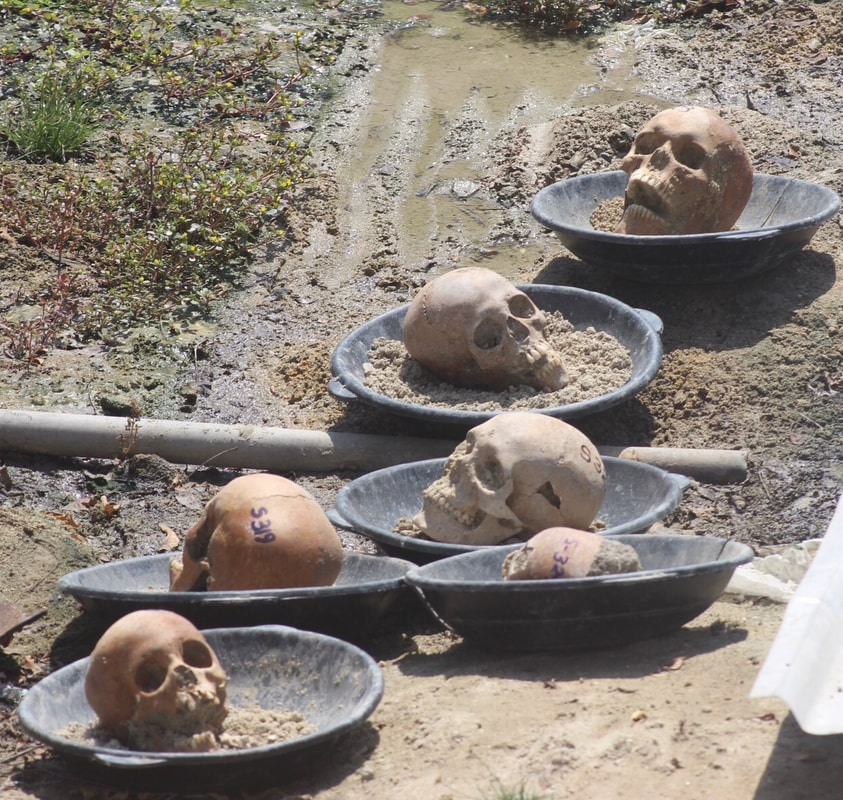
Take Action:
Sign our petition asking the U.S. government to push for an international investigation on Sri Lanka’s mass graves. After signing our petition, please share it with others: https://tinyurl.com/gotb24sl |
Iran: Free Vahid Afkari and Toomaj Salehi
Vahid Afkari:
Vahid Afkari was arbitrarily arrested for his peaceful participation in protests in his hometown of Shiraz, Iran in 2017 and 2018. Slogans chanted at these protests expressed a mix of grievances about inequality and political repression. Iranian authorities held him in solitary confinement, tortured him, and forced him to “confess” to crimes he repeatedly said he did not commit. Vahid Afkari was convicted following grossly unfair trials of a baseless accusation involving murder and sentenced to 33 years and nine months’ imprisonment and 74 lashes. The authorities are holding him in solitary confinement, denying him adequate medical care and ignoring a large body of evidence proving his innocence. Two of Vahid Afkari’s brothers – Navid Afkari and Habib Afkari – also were arbitrarily arrested in connection with their peaceful participation in the protests. On September 12, 2020, the Iranian authorities executed Navid Afkari in secret. His execution ignited outrage in Iran and throughout the world and led to escalated campaigning for his brothers. Habib Afkari was released from prison in March 2022. Toomaj Salehi: Well-known Iranian rapper and hip-hop artist Toomaj Salehi was arrested in October 2022 in connection with his music and posts on social media in support of peaceful protests in Iran and for denouncing the unjust practices of the Iranian government. Salehi was a very vocal supporter of the protests that broke out in Iran after the death in custody of 22-year-old Mahsa Amini in September 2022. Through his music he has called for freedom and an end to repression. He has been reportedly tortured and kept in prolonged solitary confinement. According to his Twitter account, he was severely beaten despite fears that he could lose his eyesight. He has reported suffering several broken bones and not receiving proper medical care in detention. In July 2023 he was convicted of "corruption on earth" and sentenced to more than six years in prison. A ban on his music has been put on him for an additional two years. He was released from prison on bail in November 2023 after a vocal campaign by Amnesty International and other organizations; unfortunately he was re-arrested just two weeks later after publicizing information about his torture while in custody, and was accused of spreading lies and propaganda against the government, just for telling the truth about his mistreatment. |
We are calling on the Iranian authorities to:
Take Action: The Persian holiday Nowruz (“new day”) is an ancient holiday celebrated on the first day of spring to welcome in the new year. Every Nowruz we remember several courageous prisoners of conscience in Iran with Nowruz greetings. Please send cards with Nowruz greetings to let our imprisoned friends know we are thinking of them at this time. This year we include some individuals who have been persecuted for exercising their right to participate in peaceful protests, an issue of critical importance to Iranians at this time. Learn more here: https://www.amnestyusa.org/wp-content/uploads/2011/02/Nowruz-action-2024.pdf |
|
China: Release A-Nya Sengdra and Other Political Prisoners
We are calling on the Chinese government to immediately and unconditionally release of all political prisoners being held by the Chinese government, including A-Nya Sengdra. Tibetan environmentalist, anti-corruption activist, and community leader A-Nya Sengdra has been held unjustly by the Chinese government since September 2018. He has been serving a 7-year prison sentence since December 2019 after being charged with “provoking agitation” and "gathering people to disturb public order." |
Resources:
|
China: End Detentions in Xinjiang
We are calling on the Chinese government to end mass detentions in Xinjiang.
Detentions in Xinjiang: We call on the Chinese government to end mass detentions in Xinjiang. We are highlighting the detention of Ekpar Asat, a Uyghur Media founder, tech entrepreneur, and philanthropist. Ekpar Asat went missing in April 2016 after returning to Xinjiang from the U.S., where he had just attended the U.S. Department of State’s premier professional exchange program, the International Visitors Leadership Program. In early 2020, the Chinese Embassy in Washington informed a U.S. Senator that he had been convicted in a secret trial on charges of “inciting ethnic hatred and ethnic discrimination” and sentenced to 15 years in prison. In late January 2021, for the first time since he went missing, he communicated with his family during a short three-minute video conversation in which he appeared very pale with black spots on his face. It is feared that he is suffering from lack of sunlight exposure and malnutrition. Ekpar Asat is a Uyghur businessman dedicated to helping older people and children with disabilities. He founded a popular social media app that featured information on a variety of current affairs and cultural topics. He is currently detained in a prison in Aksu prefecture. It is estimated that up to one million Uyghurs, Kazakhs, and other predominantly Muslim people have been held in the “transformation-through-education” centers. The Chinese authorities denied the existence of such facilities until October 2018, when they began describing them as voluntary, free “vocational training” centers. China’s explanation, however, contradicts reports of beatings, food deprivation and solitary confinement that have been collected from former detainees. For more information on the detentions in Xinjiang, please visit the "Like We Were Enemies" webpage: https://xinjiang.amnesty.org/#cases If you would like to receive updates on AIUSA's work on China, please fill out this form: https://docs.google.com/forms/d/e/1FAIpQLSeGnFRKbU9CbIrGv0ZYQwSZ6X9B7Xb15KWjFGWKUDf6Ve9ygA/viewform?pli=1 |
|
United Nations: Stop Enabling Corporations Engaged in Human Rights HarmsThe United Nations has established "the human right to a clean, healthy and sustainable environment” and, regarding climate change, has declared that "the world has never seen a threat to human rights of this scope." UN investigators have indicated businesses that are still facilitating new fossil fuel projects are acting "contrary to the goals, obligations and commitments under the Paris Agreement on climate change...contributing to climate change-related human rights impacts, contrary to their own human rights responsibilities.” With new fossil fuel projects removing realistic pathways to the goals of net zero and limiting warming to 1.5°C, UN Secretary-General, António Guterres declared that "fossil fuel producers and their enablers are still racing to expand production, knowing full well that their business model is inconsistent with human survival."
Despite this rhetoric and the unfolding human rights crisis being driven by fossil fuel expansion, the United Nations is also maintaining an array of voluntary corporate initiatives that are helping to shield some of the worst climate criminals from accountability and justice. These initiatives have little to no oversight, are not transparent about their non-binding nature, and in some cases are being guided by the same corporations that are fueling the climate crisis. UN Global Compact: The UNGC centers on human rights, labor, and the environment. It notes that businesses "have minimum responsibilities to meet to respect human rights. They must act with due diligence to avoid infringing the rights of others, which includes addressing any negative human rights impacts related to their business." Yet one study provided a list of various human rights violations perpetrated by MNEs from 2002 to 2017, verifying 273 violations by 160 MNCs mostly from developed countries. More than 90% of sample firms are signatories to the UNGC. Another study concluded that UNGC LEAD members actually demonstrate a low propensity to disclose information about significant negative events in their sustainability reports, as the disclosure of information on negative events could jeopardize LEAD companies' best-in-class image. |
UN Race to Zero:
This initiative is concerned with corporate members establishing credible alignment with global net zero and Paris-based warming goals. The Race to Zero pledge requires members, by June 2023, to have restricted the “facilitation of new fossil fuel assets” in line with “appropriate scenarios…created by the IPCC or IEA,” which clearly state the need for “no new oil and gas fields.” Despite this, there are many members still engaging in this activity with no repercussions for their deceptions or climate-based human rights harms. The Union of Concerned Scientists has noted that the science publishing company Elsevier (RELX), a Race to Zero member, "continues to publish significant content that maps 'promising' and 'potential hydrocarbon reservoir areas' of 'high-quality' for continued 'oil and gas exploration.'" (Elsevier/RELX is also a LEAD member of the UNGC) UN Net Zero Banking Alliance: Part of the Race to Zero program, the NZBA indicates members must act in ways "consistent with a maximum temperature rise of 1.5°C." Yet the NZBA includes member banks that the UN has elsewhere declared, due to continued investment in fossil fuel expansion, to be "contributing to climate change-related human rights impacts, contrary to their own human rights responsibilities.” The NZBA Steering Group includes Bank of America, Citi, HSBC, and Morgan Stanley, some of the banks most heavily invested in financing and underwriting new fossil fuel projects. This pledge misrepresents both the science and institutions that are a threat to the planet and human rights. Take Action: Sign our petition for the UN Secretary General to reform the UN's corporate initiatives: https://tinyurl.com/gotb24UN |
Egypt: Release Aisha el-Shater More information to come.
On the 5th of March, an emergency court sentenced Aisha el-Shater and her husband lawyer Mohamed Abo Horeira to 10 and 15 years in prison, respectively. They were convicted on bogus charges stemming from their family links and peaceful exercise of their human rights following a grossly unfair trial. The Egyptian authorities have been subjecting Aisha el-Shater to torture by holding her in prolonged solitary confinement and denying her access to adequate healthcare for her serious health condition. The couple have also been banned from any family visits for over 4 years. Concerns over Mohamed Abo Horeira’s wellbeing have also been heightened amid alarming reports of torture and other ill-treatment in Badr 3 prison where he is being held. |
